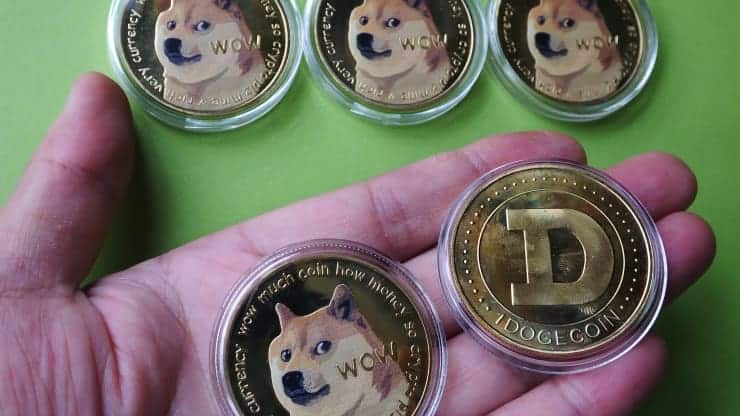
Robinhood said crypto accounted for more than half of all transaction-based sales in the second quarter, and 62% of crypto revenue came from dogecoin, a meme-inspired digital coin originally started as a joke.
In its first earnings report since its IPO last month, Robinhood said its revenue from crypto transactions was $233 million, up from $5 million in the year-ago quarter. Crypto accounted for 52% of transaction-based revenue, rising from 17% in the first quarter and 4% in the fourth quarter of last year.
The company also noted that more than 60% of cumulative net-funded accounts traded crypto in the quarter.
“The three months ended June 30, 2021 is the first quarter where a larger share of new customers placed their first trade in crypto rather than equities,” Robinhood said in the earnings statement.
While Robinhood gained popularity by bringing free stock trading to a new generation of investors, the company has also been a big beneficiary of the surge in cryptocurrency markets. The app allows investors to buy and sell seven digital currencies, including bitcoin, bitcoin cash, dogecoin, ethereum and litecoin.
Cryptocurrencies had a particularly volatile second quarter. The price of bitcoin plunged by more than 40% after a huge rally in 2020, though it has since recouped much of that value. Ethereum, meanwhile, rose by about 18%, and dogecoin more than quadrupled in value.
Robinhood said in its IPO prospectus that dogecoin accounted for 34% of its cryptocurrency transaction-based revenue in the first quarter, up from 4% in the fourth quarter. Much of that increase coincided with a barrage of tweets about dogecoin from Tesla CEO Elon Musk.
That number jumped significantly higher in the latest period as dogecoin’s value continued to soar.
Robinhood even included a specific risk in its prospectus and quarterly report tied to dogecoin, noting that its business could be hurt “if the markets for dogecoin deteriorate or if the price of dogecoin declines.”
Robinhood makes money in crypto by routing orders to market makers that the company says offer “competitive pricing” and taking a percentage of the order value. Overall, crypto assets on the platform almost doubled in the second quarter to $22.7 billion from $11.6 billion a quarter earlier and $3.5 billion at the end of 2020.
PayPal, Coinbase, which went public earlier this year, and Square’s Cash App are other popular services used by U.S. consumers to buy and sell cryptocurrencies.


























